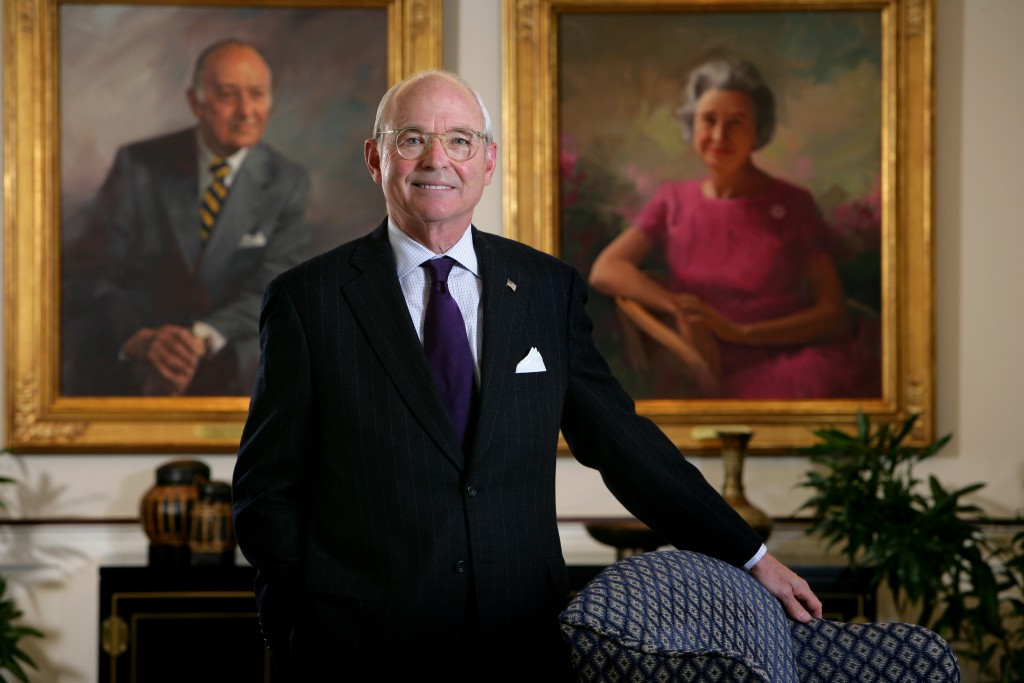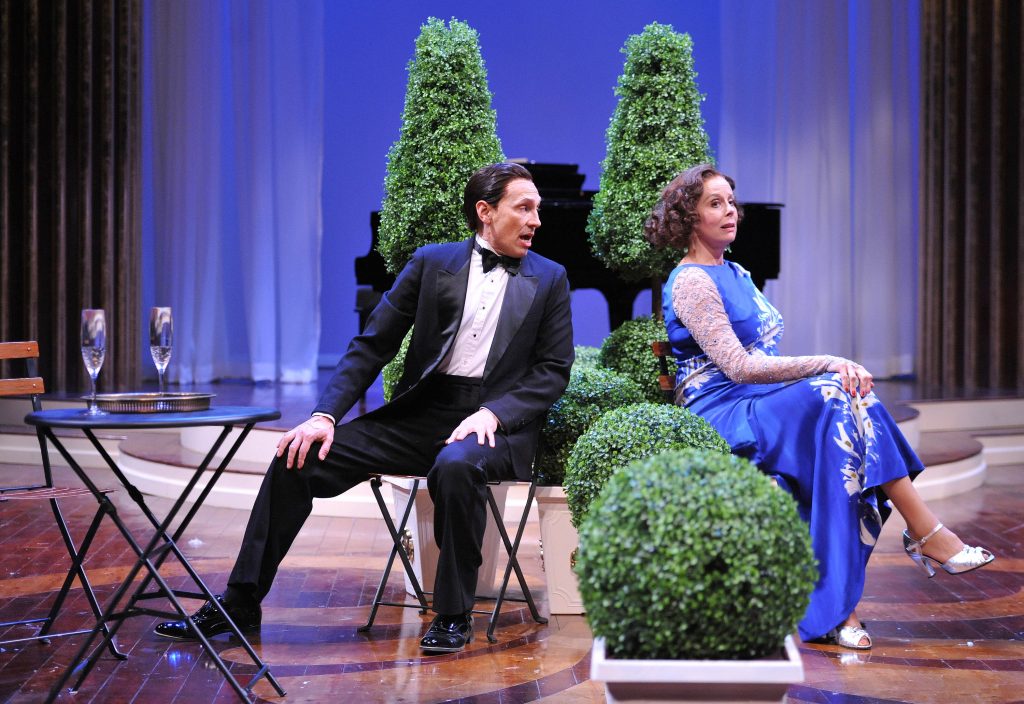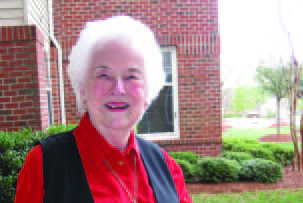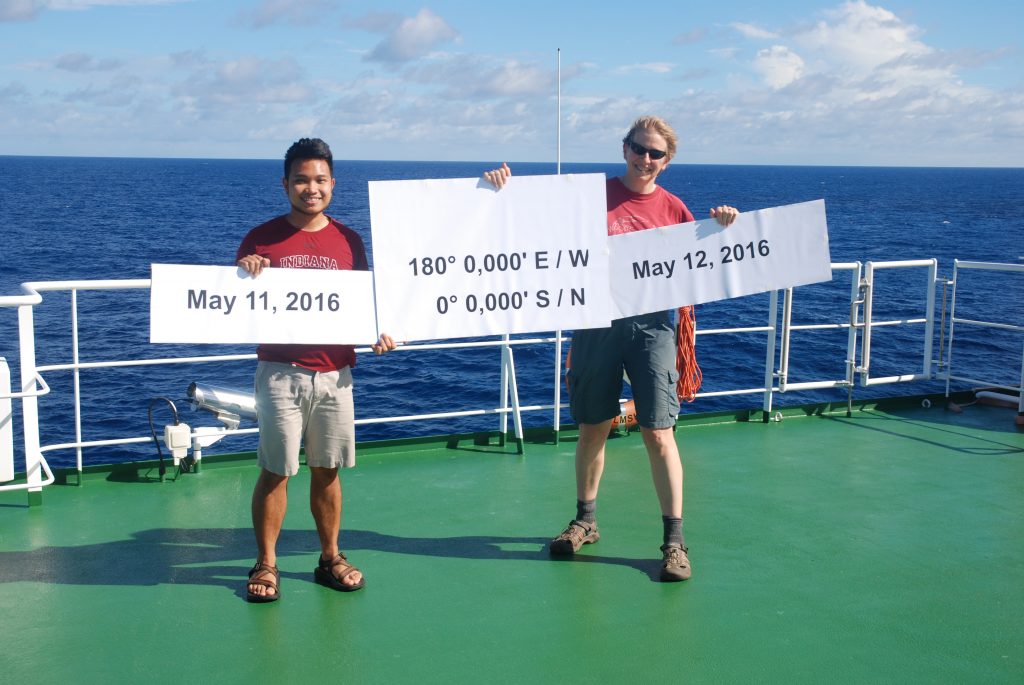
Jessica Tanner, an assistant professor of French at Carolina, doesn’t often get the chance to speak the language she loves so much – at least outside of the classroom.
“There aren’t a lot of opportunities in French to really engage with the community,” Tanner said. “I was excited about the idea of doing something else.”
That something else is the Foreign Language Lunch, a midday meal shared with people who have read the same foreign news article and come together to discuss it in a common foreign language. It’s designed for native speakers and people who want to learn a language outside of the classroom.
The idea for Language Lunches came from Rachel Schaevitz of Carolina Public Humanities. This outreach program in the College of Arts & Sciences is designed to nurture a deeper understanding of history and culture, enrich the life of the mind and contribute to the development of a more humane world. Schaevitz is diversifying programs offered by the program beyond public seminars and lectures to bring more scholarship off campus and into the community in an accessible way.
“To say that we’re trying to serve the community, that doesn’t mean one slice of the community,” said Schaevitz, a postdoctoral fellow. “We should be serving all of the different pockets, neighborhoods and groups in the community.”
French is just one of several languages offered in the Language Lunches program by Carolina Public Humanities. German, Italian and Spanish will also be offered this fall, and former lunches include Arabic, Mandarin, Russian and Turkish.
At $20 per person, which covers the meal at Weathervane in University Place, Language Lunches are a break-even program for Carolina Public Humanities, Schaevitz said. Private gifts and endowments help subsidize events that don’t make money, like the Language Lunches or training seminars for K-12 teachers, for which CPH covers the costs.
Lingua franca
About a year after the first French-only lunch, Tanner and regular guests have built a tight-knit francophone community in Chapel Hill.
Regular attendees include a former French high school teacher, some French expatriates, a Creole man from New Orleans trying to learn the language of his youth, people who have lived in French-speaking countries and even a former chief of the Associated Press’s Paris bureau. In addition to the Language Lunches, they share other opportunities to speak French or engage in French cultural activities, like watching French films or discussing French literature.
Joan Montana, a Chapel Hill resident since 1971 and French Lunch frequenter, said these lunches fill a need in the community. People are eager to come because Tanner and Schaevitz have created such a welcoming environment.
“This is a group where one finds French speakers ready and willing to converse, improve their language and not feel embarrassed about making mistakes with the language,” said Montana, whose love for the French language and culture began with her French-Canadian father speaking to her in French at a young age. It blossomed when she joined her husband on two sabbaticals in France in the 1970s.

Skills and civility
This community of willing and able francophones has helped Tanner feel more connecting to Chapel Hill beyond the campus. She also has improved her teaching in the classroom because of the breadth of perspectives and experiences each member has.
“I have been challenged in really fun and interesting ways when we’re talking about a particular cultural or civilization topic,” Tanner said. “They push me on things and help me to see things from different angles that change the way I teach my courses.”
To Tanner, these Language Lunches fit in well with the role the humanities play in generating greater understanding. People come together for a civil discussion. Although they do not always agree, people reflect on their own life experiences and backgrounds and those of others.
“These lunches do a good job of teaching people to engage critically with texts, with ideas and with each other, and I think those are incredibly valuable skills,” she said. They also help fulfill the University’s mission: to serve the citizens of North Carolina.
“I think sometimes it’s hard to understand how to go about doing that,” Tanner said. “Having these events that engage different communities – communities that we don’t normally serve in our classrooms – is really valuable to our public mission,” Tanner said.
“The intellectual life of the University is not just contained within its walls. It goes beyond the campus, and these Language Lunches are opportunities to do that,” she said. “It’s vital.”
Interested in polishing or refreshing your foreign language speaking skills in a warm and welcoming environment? All Language Lunch participants receive in advance a short foreign language article that serves as the foundation for the lunch discussion. Language Lunches take place from noon to 1:30 p.m. Seats are limited, so sign up early to reserve a spot. The cost is $20 and includes lunch. For more information, visit humanities.unc.edu/programs/. To register for a lunch, visit hhv.oasis.unc.edu or call 919-962-1544.
Story by Will Rimer, UNC Communications




